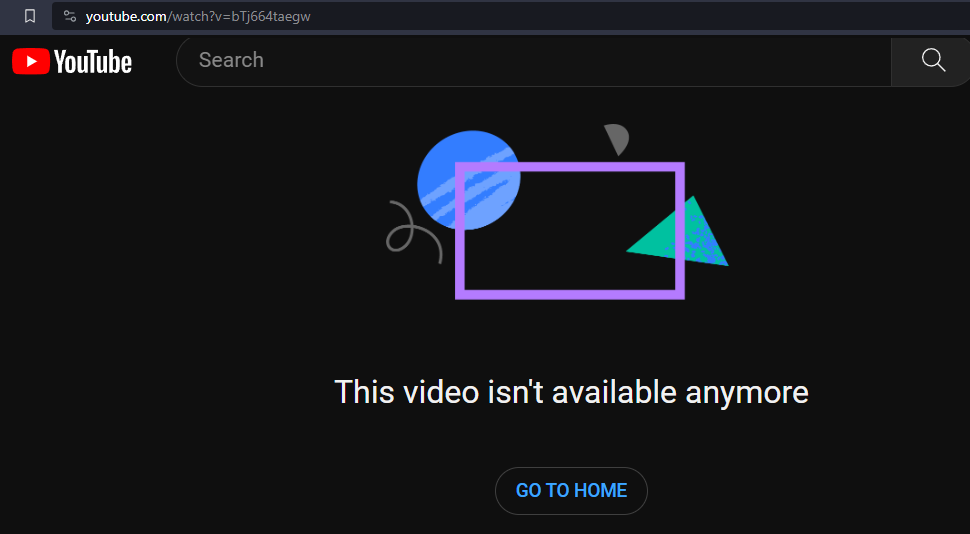The Department of Homeland Security (DHS)’s cybersecurity agency is burying evidence of its prior efforts to encourage the domestic censorship of US citizens online, silently deleting a dystopian video it published in 2021 instructing children to report their own family members to Facebook for “Covid disinformation.”

In August 2022, Foundation for Freedom Online (FFO) published a report that highlighted a particularly troubling cartoon video released by the DHS’s Cybersecurity and Infrastructure Security Agency (CISA). In the cartoon, CISA encourages a young woman to report a family member — her “Uncle Steve” — to Facebook, after he makes a post claiming that “Covid-19 is no worse than the flu.” FFO archived and presented clips from the video below:
The quiet purge of censorship evidence took place even as the Supreme Court prepares to issue a ruling in Missouri v. Biden, the lawsuit concerning the very activities that the agency now aims to hide from view. It also comes as evidence of DHS’s involvement in the censorship industry mounts: the House Judiciary Committee recently released new evidence proving that the Election Integrity Partnership — the coalition of social media monitoring and mass-reporting outfits that took a leading role in censoring American political speech during the 2020 election — was created at the behest of DHS.
Wayback Machine records now confirm that DHS deleted the video sometime between April 9, 2023 and May 9, 2023, which would have been during the run-up to the Missouri v. Biden trial court ruling on the federal government’s role in online censorship.
In 2022, after FFO spotlighted the shocking video — which was formerly on CISA’s public YouTube channel but now reads “This video is unavailable” — it received wide political and media attention. Tucker Carlson, then host of the most popular cable news in the country, devoted a segment to DHS’s dystopian video, discussing it with then U.S. Senate candidate Blake Masters.
“By definition, if you’re trying to separate children from their parents, break apart the family so that you can have more control over the country – that’s the very definition of authoritarianism,” said Carlson.
Following this coverage, a reporter at the Washington Post frequently panned for consistent and biased errors in reporting attempted to discredit FFO’s report, tenuously alleging that the DHS video was not aimed at children, despite its cartoon format and depiction of a young adult or child reporting her family members for “disinformation.”
One glaring issue overlooked by the Washington Post’s coverage was how and why CISA became involved in the censorship of domestic social media “disinformation” in the first place. The agency, after all, was set up in 2018 to deal with the threat of foreign cyberattacks, not domestic speech online.
CISA could have maintained this threat as its sole focus. Instead, it pulled off two “switcheroos” to attain long-arm jurisdiction of social media: first, it switched “cybersecurity” from meaning hacking and malware attempts to disinformation online; second, it switched its focus from foreign to domestic — with one highly influential CISA advisor, Stanford Internet Observatory director Alex Stamos, proposing in summer 2020 that CISA focus 80% of its censorship efforts on domestic rather than foreign “mis/disinfo.”
For the full story on how CISA pulled off these two flagrantly unlawful “switcheroos,” see this FFO report.
As a slew of leaks published in The Intercept last year revealed, DHS was at the center of government collusion with social media platforms to censor American political speech during the 2020 election. In 2020, DHS’s outside election censorship partner network included 120 analysts who monitored social media for “misinformation” in shifts of up to 20 hours, collecting 829 million tweets in a database for “misinformation” analysis, and resulted in 22 million tweets being proposed to be labeled as “misinformation” by the platform. Hundreds of millions of individual Facebook posts, YouTube videos, TikToks, and tweets were also impacted due to policy changes that DHS’s partners, by their own admission, forced on major tech companies through a combination of media and government pressure.
Domestic Threat Actors
If DHS was convinced that combating “misinformation” was part of its remit in defending the homeland against foreign threats, why would it now seek to cover its tracks? Why would it not proudly advertise its efforts to protect Americans from the danger of Uncle Steve’s Covid commentary?
At one time – before its activities were the subject of Congressional investigations and a Supreme Court case – DHS did exactly that.
Since May 1st, 2021, CISA publicly declared on its website that it classified U.S. citizens who post “misinformation” on social media as “domestic threat actors” and therefore a cyber threat to be neutralized by the agency. The phrase “domestic threat actor” had its origins in a 2019 DHS report titled “Combating Targeted Disinformation Campaigns,” which called for a “whole-of-society approach” to overcome the threat.

But the “domestic threat actors” described by DHS in its report were not collaborators with hostile regimes, nor adherents of terrorist sympathizing ideologies. Instead, DHS pointed the finger at social media users who made satirical memes mocking former NFL athlete Colin Kaepernick and his sponsors at Nike. These were the type of people that DHS claimed were part of a “disinformation kill chain” that resulted in undesirable policy positions winning out. Examples cited by the agency included Brexit and opposition to military involvement in Syria.

Critics of corporate wokeness, opponents of reckless military interventions, and supporters of a campaign for increased political sovereignty from a transnational body: these were the people labeled “domestic threat actors” by DHS. And, by 2021, its cybersecurity division, CISA, was loudly boasting about its efforts to censor them.


In January 2021, CISA updated the web page for its “Countering Foreign Influence Task Force” giving it a renewed focus on both foreign and domestic threats. “Foreign and domestic threat actors” wrote CISA, use mis-, dis-, and malinformation to “undermine our democratic institutions and national cohesiveness.” CISA approvingly cited its work with “interagency and private sector partners, social media companies, academia, and international partners” as part of its efforts to control information online.
The Coverup
Archives obtained by FFO show that sometime between Fri, Feb. 24 at 4:37PM & Sun, Feb. 26 at 5:55AM this year, CISA once again updated its web page on countering disinformation, removing all references to domestic censorship. Every single use of the word “domestic” was scrubbed from the page. Today, a new visitor to the web page might falsely conclude that CISA has only ever focused on foreign actors.

CISA also purged references to its domestic “disinformation switchboard,” which the agency used to alert social media platforms of officially disapproved speech, “leveraging rapport” with the tech companies to achieve CISA’s censorship objectives. Previously, CISA’s website openly admitted that it had been engaged in these activities since 2018, and ramped them up during the 2020 elections.

The high watershed of CISA’s belief that it had a duty to censor political discussion in America was CISA director Jen Easterly’s November 2021 claim that the nation’s “most critical infrastructure” is “our cognitive infrastructure.” In other words, in November 2021, CISA’s director believed the agency’s remit extended into the very minds of American citizens.
Faced with congressional investigations and a looming Supreme Court ruling in Missouri v. Biden, DHS now appears to be engaged in an attempt to hide evidence of its domestic censorship operations from public view – operations it once openly boasted of. For plaintiffs lawyers in that high-stakes case, there is perhaps little more compelling evidence for a court injunction against such government misbehavior than the present disavowal of such past behavior by the government defendant itself.

Michael Benz is the Executive Director of the Foundation for Freedom Online. Previously, Mr. Benz served as Deputy Assistant Secretary for International Communications and Information Technology at the U.S. Department of State. Follow him on Twitter @FFO_Freedom.




